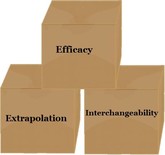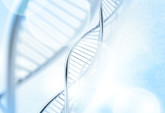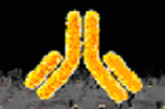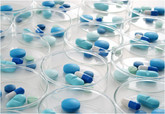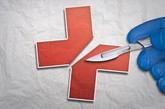Biosimilars/Research
Pharmacovigilance for mAbs
Professor Pierre Michetti, a gastroenterologist at the Centre Hospitalier Universitaire Vaudois, Lausanne, Switzerland in his paper discusses questions related to monoclonal antibody (mAb) biosimilars [1]. One question addressed was that of pharmacovigilance for mAbs.
Beyond biosimilarity
The advent of monoclonal antibody (mAb) biosimilars has raised a series of questions in the healthcare community. Just a few of these questions were discussed by Professor Pierre Michetti, a gastroenterologist at the Centre Hospitalier Universitaire Vaudois, Lausanne, Switzerland [1].
Efficacy and safety of biosimilar infliximab compared to other biologicals in rheumatoid arthritis
In the paper by Baji et al. [1], the authors carried out a meta-analysis to compare the efficacy and safety of biosimilar infliximab and other available biologicals for the treatment of rheumatoid arthritis (RA), namely abatacept, adalimumab, certolizumab pegol, etanercept, golimumab, infliximab, rituximab and tocilizumab. The analysis compared the recommended doses of biological disease-modifying anti-rheumatic drugs (DMARDs) indicated in RA.
Switching and extrapolation of subsequent entry biologics in Canada
The regulatory framework for biosimilars in Canada explains how their substitutability and/or interchangeability are governed in the country. Biosimilars, which are known as subsequent entry biologics (SEBs) in Canada, are regulated in line with guidance from the World Health Organization.
Efficacy, extrapolation and interchangeability of biosimilars
Biosimilars have been available in Europe for more than seven years; despite this fact, physicians still have concerns about the use of biosimilars. Some of their concerns have been discussed by members and experts of the Working Party on Similar Biologic Medicinal Products of the European Medicines Agency (EMA) [1].
Safety concerns limit similar biologics uptake in India
How do concerns about the safety of domestic biologicals limit the uptake of ‘similar biologics’ in India? This is a question that author Malipatil tried to address in his review of similar biologics in India [1].
Differences between biosimilars and reference products
A review of glycosylated biosimilars approved in the European Union (EU) and Japan has highlighted structural variances between biosimilars and their reference products [1].
Pharmacovigilance for biologicals in The Netherlands
Escher is an independent regulatory research platform run by Netherlands-based research enabler TI Pharma. The group recently published a paper in the journal Drug Safety on the traceability of biologicals in clinical practice and adverse drug reaction (ADR) reporting [1]. This paper concludes that in The Netherlands brand names are not routinely recorded in clinical practice and batch numbers are poorly recorded. The findings suggest that the limited traceability of brand names and batch numbers in ADR reports for biologicals may be primarily caused by the shortcomings in the recording and tracing of information in clinical practice.
Barriers to biologicals competition
As finding breakthrough small-molecule drugs becomes more difficult, drug companies are increasingly turning to ‘large molecule’ biologicals. Although biologicals represent many of the most promising new therapies for previously intractable diseases, they are extremely expensive. Moreover, the pathway for generic-type competition set up by the US Congress in 2010 is unlikely to yield significant cost savings.
Adalimumab biosimilar meets primary endpoint in pharmacokinetic study
On 21 December 2015, Baxalta, a spinoff company from Baxter International, and US-based biotechnology firm Momenta Pharmaceuticals (Momenta) announced positive results from a pharmacokinetic study with their candidate adalimumab biosimilar M923.
Positive phase III results for cetuximab and infliximab copy biologicals
US-based biopharmaceutical company Sorrento Therapeutics (Sorrento) announced on 11 January 2016 that its partner, MabTech had successfully completed phase III clinical trials in China for STI-001, a copy biological for cetuximab (Erbitux) and STI‑002, a copy biological for infliximab (Remicade). Both STI-001 and STI-002 met their primary endpoints in confirmatory, randomized, controlled, two-part phase III studies.
Lack of health insurance limits access to biologicals in India
One example of a negative driver of the ‘similar biologics’ market in India is the lack of health insurance in the country [1].
Factors affecting the uptake of ‘similar biologics’ in India
In his review of similar biologics in India, Dr Nagaraj Malipatil, a clinical pharmacologist from Bangalore, attempted to address what are the drivers and the limitations to the ‘similar biologics’ market in India [1].
Partnerships driving similar biologics development in India
With biosimilars grabbing an increasing share of the global biologicals market and with India providing a cheaper place to carry out research and development, more international players are partnering with Indian companies.
Domestic biologicals cost less in India
One of the factors increasing the use of similar biologics in India is the fact that domestic biologicals cost much less than the originator brand-name biologicals [1].
Low costs and less stringent regulatory requirements in India
Dr Nagaraj Malipatil, a clinical pharmacologist, from Bangalore, India in his review of ‘similar biologics’ in India, outlines some of the drivers of the ‘similar biologics’ market in India [1].
Pegfilgrastim biosimilar as safe and effective as Neulasta
Sandoz, the generics division of Novartis, announced on 7 December 2015 positive results from a phase III study of its pegfilgrastim biosimilar (LA-EP2006).
Regulation and uptake of ‘similar biologics’ in India
India has, by far, demonstrated the greatest acceptance of ‘similar biologics’. But what are the drivers and the limitations to the ‘similar biologics’ market in India? This is a question Dr Nagaraj Malipatil, a clinical pharmacologist, from Bangalore, India tried to address in his review of similar biologics in India [1].
Positive phase III results for adalimumab biosimilar
US-based biologicals giant Amgen announced on 9 November 2015 that results from a phase III study of its adalimumab biosimilar (ABP 501) had ‘met the primary endpoint’.
AE reporting for biologicals
Researchers from the Tufts Center for the Study of Drug Development (Tufts CSDD) sought to answer [1] examined primary suspect reports sent to the US Food and Drug Administration’s (FDA) Adverse Event Reporting System (FAERS) from US reporters for two biologicals that have lost patent exclusivity – somatropin and human insulin. The study was carried out to inform both FDA and the global drug development community about how naming of biosimilars might affect the traceability of adverse events (AEs).


